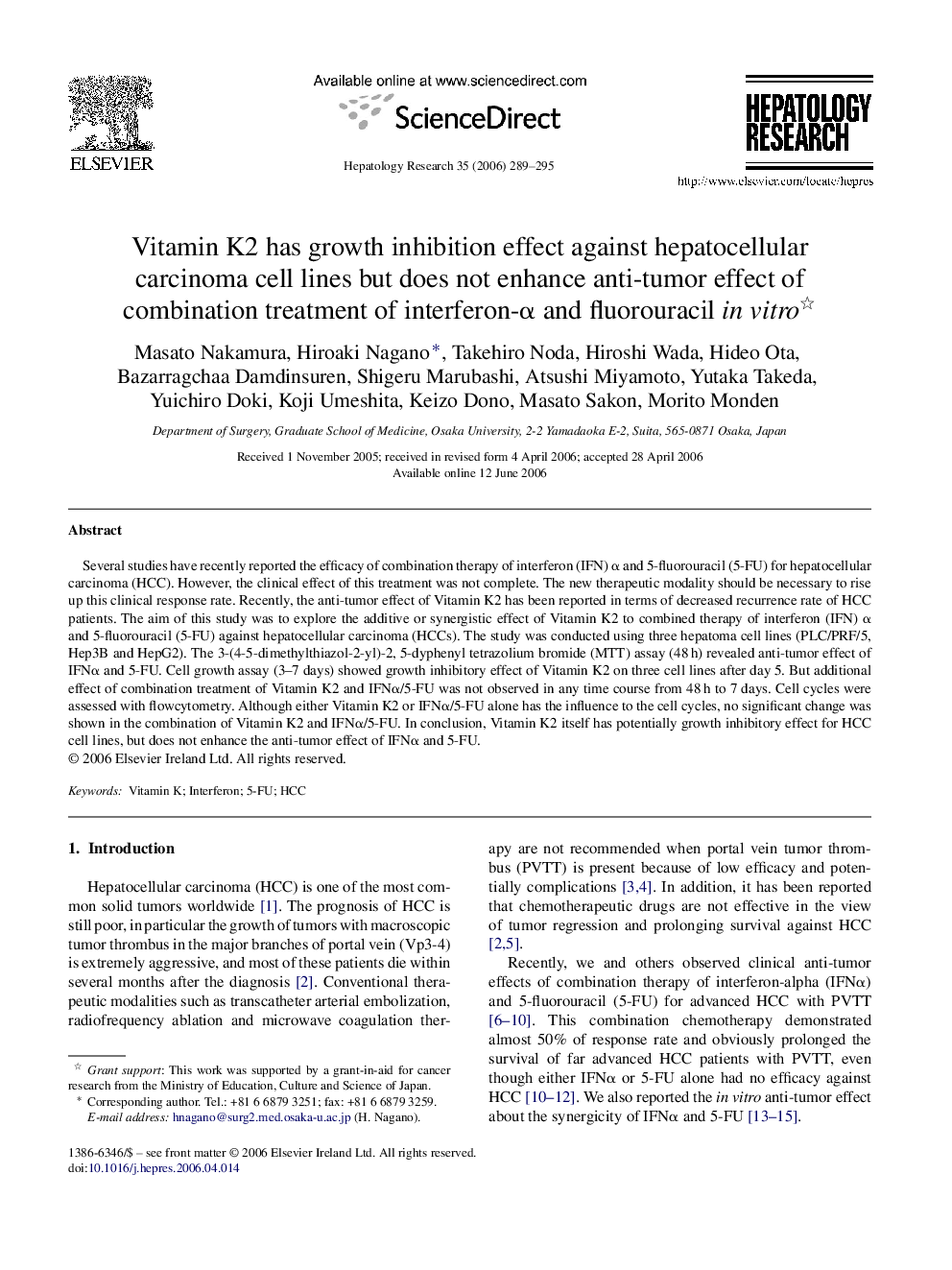| Article ID | Journal | Published Year | Pages | File Type |
|---|---|---|---|---|
| 3311402 | Hepatology Research | 2006 | 7 Pages |
Abstract
Several studies have recently reported the efficacy of combination therapy of interferon (IFN) α and 5-fluorouracil (5-FU) for hepatocellular carcinoma (HCC). However, the clinical effect of this treatment was not complete. The new therapeutic modality should be necessary to rise up this clinical response rate. Recently, the anti-tumor effect of Vitamin K2 has been reported in terms of decreased recurrence rate of HCC patients. The aim of this study was to explore the additive or synergistic effect of Vitamin K2 to combined therapy of interferon (IFN) α and 5-fluorouracil (5-FU) against hepatocellular carcinoma (HCCs). The study was conducted using three hepatoma cell lines (PLC/PRF/5, Hep3B and HepG2). The 3-(4-5-dimethylthiazol-2-yl)-2, 5-dyphenyl tetrazolium bromide (MTT) assay (48 h) revealed anti-tumor effect of IFNα and 5-FU. Cell growth assay (3-7 days) showed growth inhibitory effect of Vitamin K2 on three cell lines after day 5. But additional effect of combination treatment of Vitamin K2 and IFNα/5-FU was not observed in any time course from 48 h to 7 days. Cell cycles were assessed with flowcytometry. Although either Vitamin K2 or IFNα/5-FU alone has the influence to the cell cycles, no significant change was shown in the combination of Vitamin K2 and IFNα/5-FU. In conclusion, Vitamin K2 itself has potentially growth inhibitory effect for HCC cell lines, but does not enhance the anti-tumor effect of IFNα and 5-FU.
Keywords
Related Topics
Health Sciences
Medicine and Dentistry
Gastroenterology
Authors
Masato Nakamura, Hiroaki Nagano, Takehiro Noda, Hiroshi Wada, Hideo Ota, Bazarragchaa Damdinsuren, Shigeru Marubashi, Atsushi Miyamoto, Yutaka Takeda, Yuichiro Doki, Koji Umeshita, Keizo Dono, Masato Sakon, Morito Monden,
